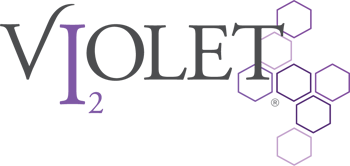At Violet Daily, women’s breast health is our priority. This National Breast Health Month, we’re leading the charge to help women understand what it means to have dense breasts – because when it comes to dense breasts, there can be plenty of questions and concerns.
Dense breast tissue is common and can impact breast health in various ways. To help you navigate this topic, we’ve put together 10 important frequently asked questions (FAQs) about dense breasts and their connection to breast cancer, screening, treatment options, and more.
1. Can dense breasts increase the risk of breast cancer?
Yes, having dense breast tissue can slightly increase your risk of developing breast cancer. Dense breasts have more glandular and fibrous tissue, which can make it harder to detect abnormalities on mammograms. However, it’s essential to remember that having dense breasts is just one factor among many that may influence breast cancer risk.
Women with the highest density are 4 to 6 times more likely to develop breast cancer than those with less dense breasts because glandular tissue is more likely to develop cancer.
2. How does breast density affect mammogram results?
Breast density can affect mammogram results by making it more challenging to spot small tumors or abnormalities. Dense tissue appears white on mammograms, similar to potential cancerous tissue, which can lead to false positives or missed cancers.
3. Are there different categories or levels of breast density?
Yes, radiologists categorize breast density into four levels: almost entirely fatty, scattered fibroglandular, heterogeneously dense, and extremely dense. The higher the level of density, the more glandular and fibrous tissue there is compared to fatty tissue.
4. What are the implications of having dense breasts for breast cancer screening?
Women with dense breasts may benefit from additional screening methods, such as ultrasound or MRI, in addition to mammography. These tests can provide a more comprehensive view of breast tissue.
5. What are the recommendations for breast cancer screening for women with dense breasts?
For women with dense breasts, it’s important to discuss your screening plan with your healthcare provider. In some cases, they may recommend starting screening at a younger age or using additional imaging techniques.
Specifically, magnetic resonance imaging (MRI) is considered one of the most effective tools for screening dense breast tissue. The European Society of Breast Imaging (EUSOBI) recommends MRI breast screenings every 2 to 4 years.
6. Can dense breast tissue change over time?
Yes, breast density can change over time. Factors such as age, menopause, and hormonal changes can influence breast density. It’s essential to have regular screenings to monitor any changes.
7. Are there lifestyle changes or interventions that can reduce breast density?
Breast density can be influenced by hormonal factors, but there are no proven lifestyle changes or interventions that can significantly reduce it. Maintaining a healthy lifestyle with a balanced diet and regular exercise is always a good practice for overall health.
However, molecular iodine, like that in Violet Daily supplements, can help you maintain healthy breast tissue. Studies have even shown that molecular iodine can help decrease breast tissue density.
8. What are the treatment options if breast cancer is detected in women with dense breasts?
Treatment for breast cancer detected in women with dense breasts is similar to that for women with non-dense breasts. The greater concern is that cancer be discovered early so that there are more treatment options available.
9. How often should women with dense breasts have mammograms?
The frequency of mammograms for women with dense breasts depends on individual risk factors and recommendations from healthcare providers. For example, women with a family history of breast cancer or breast cancer diagnosis at a young age may have different recommendations than a woman with no family history. Discuss your screening schedule with your doctor and make sure to include any family history or pertinent information.
10. Is breast self-examination effective for women with dense breasts?
Yes, breast self-examination is essential for all women, including those with dense breasts. Regular self-exams can help you become familiar with your breast tissue, making it easier to detect any changes.
BONUS: What should women with dense breasts discuss with their healthcare providers?
Women with dense breasts should have open and ongoing discussions with their healthcare providers about breast cancer risk, screening options, and any changes in breast health. Be proactive in seeking guidance and staying informed.
Remember, every woman’s breast health is unique, and it’s crucial to work closely with your healthcare team to develop a personalized plan that addresses your specific needs and concerns. Your health and well-being are worth it!
